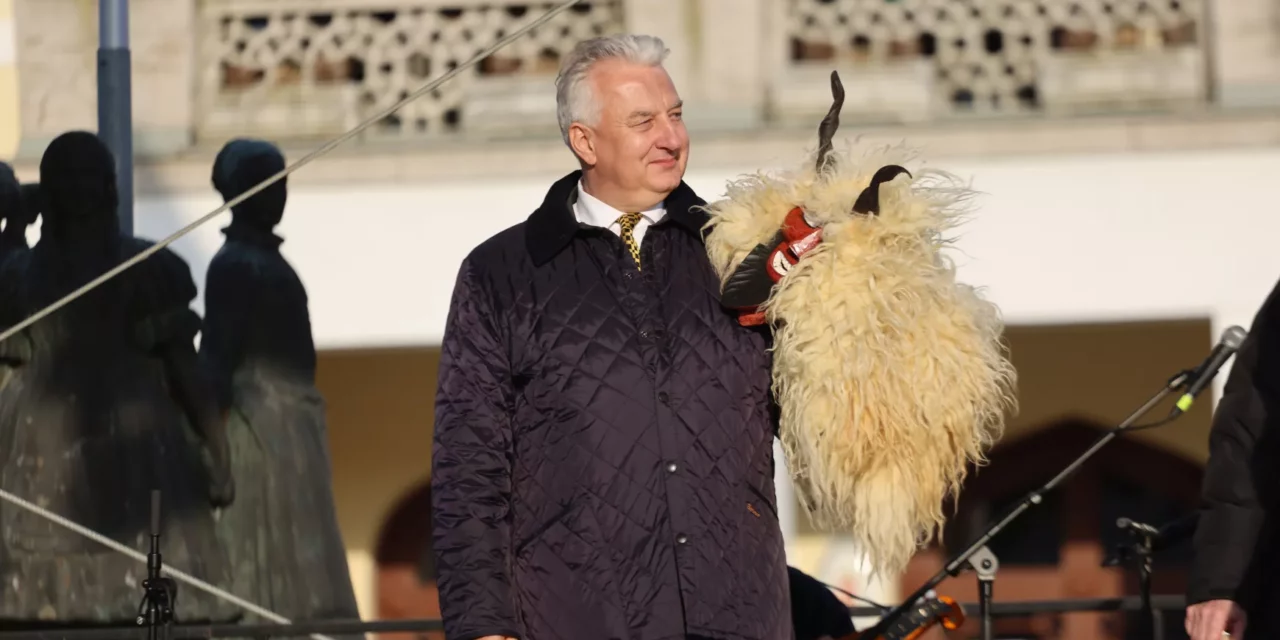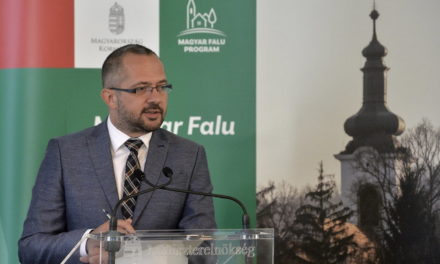The mission of all nations and nationalities is to preserve, develop and present their own heritage - emphasized Zsolt Semjén Mohácson, during the main program of the bus tour on Sunday.
Addressing the participants in the folk tradition of welcoming spring and winter in the main square of the city on the Danube, the Deputy Prime Minister drew attention to the following: "our heritage is a value that only we can give to universal humanity" and "if we do not preserve our traditions, then we will no one will."
He said that the folk tradition, historical memory and spiritual symbolism evoking the renewal of nature characterize the Mohács Busójárás, whose traditions must be nurtured, since this folk custom is Hungarikum and represents a value for all of humanity, which UNESCO has since 2009 designated as the spiritual and cultural heritage of humanity. recognized as part of heritage.
After the Deputy Prime Minister's speech, the new buses were opened, and then a free carnival began in downtown Mohács.
The popularity of the Mohács folk custom is steadily increasing: according to the organizers' estimates, 40-45 thousand people will participate in this year's bus tour during the six days of the event. A record number of 2,200 masqueraders will entertain those interested this year, and visitors can participate in two hundred programs at fifteen locations between February 16 and 21.
The famous carnival event, which was settled by a group of people known colloquially as sokác, and among the people of Mohács as sokac, was first mentioned in a record from 1783.
According to a legend among the ethnic group that settled around Mohács during the Turkish subjugation from the Balkan region, their cunning ancestors fled from the Turkish occupation to Mohács Island on the other side of the Danube. The multitudes returned after crossing the river wearing disguises, and attacked the superstitious Turks, who, terrified by the frightful masqueraders, fled the city headlong.
The traditional elements of winter hunting and spring greeting folk customs have remained unchanged for centuries: adults dressed in badger furs, linen coats, boskors, in carved masks, equipped with characteristic props - satchels, maces, lap clappers and columns - say goodbye to the harsh season and wait for spring.
In 2009, the UNESCO Educational, Scientific and Cultural Organization of the United Nations added the bus tour as the first Hungarian element to the representative list of the intellectual cultural heritage of humanity.
Source: Magyar Hírlap
Featured image: hirado.hu













